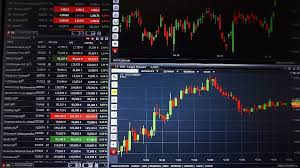
Mastering Day Trading in Forex: Tips and Strategies for Success
Day trading in forex is an exciting and fast-paced trading approach that involves buying and selling currency pairs within a single trading day. Whether you are an experienced trader or a novice, understanding the core principles of forex day trading is crucial for achieving success. To enhance your trading experience and maximize profit potential, consider exploring day trading in forex Best Cambodian Brokers that cater to your needs.
The Basics of Forex Day Trading
Forex, or foreign exchange, is the marketplace for trading national currencies against one another. It’s one of the largest and most liquid financial markets in the world, with a daily trading volume exceeding $6 trillion. Day trading takes advantage of price fluctuations in currency pairs, aiming to profit from small price movements within a single day without holding positions overnight.
Why Choose Day Trading in Forex?
There are several compelling reasons to consider day trading in forex:
- High Liquidity: The forex market is open 24 hours a day, five days a week, allowing for high liquidity and flexibility in trading.
- Accessibility: With minimal capital required to start, anyone can engage in day trading, making it an attractive option for traders of all levels.
- Potential for Quick Profits: Day traders can capitalize on small price movements, potentially generating profits multiple times within a single day.
- Risk Management: Since positions are closed by the end of the trading day, day traders can manage risks more effectively by avoiding overnight market exposure.
Essential Strategies for Successful Day Trading
To thrive as a day trader in the forex market, it is essential to develop and implement effective strategies. Here are some key strategies to consider:

1. Trend Analysis
Identifying trends is critical in forex day trading. Traders should use technical analysis tools, such as moving averages or trendlines, to determine market direction. By trading in the same direction as the prevailing trend, you increase your chances of success.
2. Scalping
Scalping is a popular day trading technique that involves making numerous trades throughout the day, typically holding positions for a few seconds to several minutes. The aim is to profit from small price changes. Scalpers rely on tight spreads and high trading volume to maximize their returns.
3. News Trading
The forex market is heavily influenced by economic news and events. Traders can capitalize on volatility created by news releases by planning trades ahead and executing them quickly. However, it is crucial to have a solid risk management plan in place, as news events can cause sudden and unpredictable market movements.
4. Using Technical Indicators
Technical indicators are essential tools for day traders. Indicators like the Relative Strength Index (RSI), Moving Average Convergence Divergence (MACD), and Bollinger Bands help traders identify entry and exit points based on historical price data. Combining multiple indicators can enhance decision-making.

5. Risk Management
Effective risk management is crucial for long-term success in day trading. This includes setting stop-loss and take-profit orders to limit potential losses and secure profits. Additionally, traders should risk only a small percentage of their trading capital on any single trade to protect their accounts from significant drawdowns.
Choosing the Right Broker
Choosing the right forex broker is a vital step in your day trading journey. A good broker will offer competitive spreads, fast execution times, and an intuitive trading platform. Ensure that the broker you select is regulated and provides adequate educational resources to support your trading endeavors.
Common Mistakes to Avoid
Even with the best strategies and tools, it’s easy to make mistakes as a day trader. Here are some common pitfalls to avoid:
- Overtrading: It can be tempting to place too many trades in a day, leading to increased fees and greater exposure to market risk.
- Ignoring Economic Calendars: Trading without considering upcoming economic events can result in unexpected market moves that could have been avoided.
- Emotion-Driven Trading: Emotional decisions can derail even the most disciplined traders. Sticking to a trading plan is essential.
- Lack of Analysis: Failing to analyze past trades can prevent you from learning from mistakes and optimizing your strategy.
Conclusion
Day trading in forex is a rewarding, albeit challenging, endeavor that requires knowledge, practice, and discipline. Implementing effective strategies, managing risk, choosing the right broker, and avoiding common mistakes can lead to long-term success. As you embark on your day trading journey, remember to remain patient and continuously educate yourself about the ever-evolving forex market.

Leave a reply